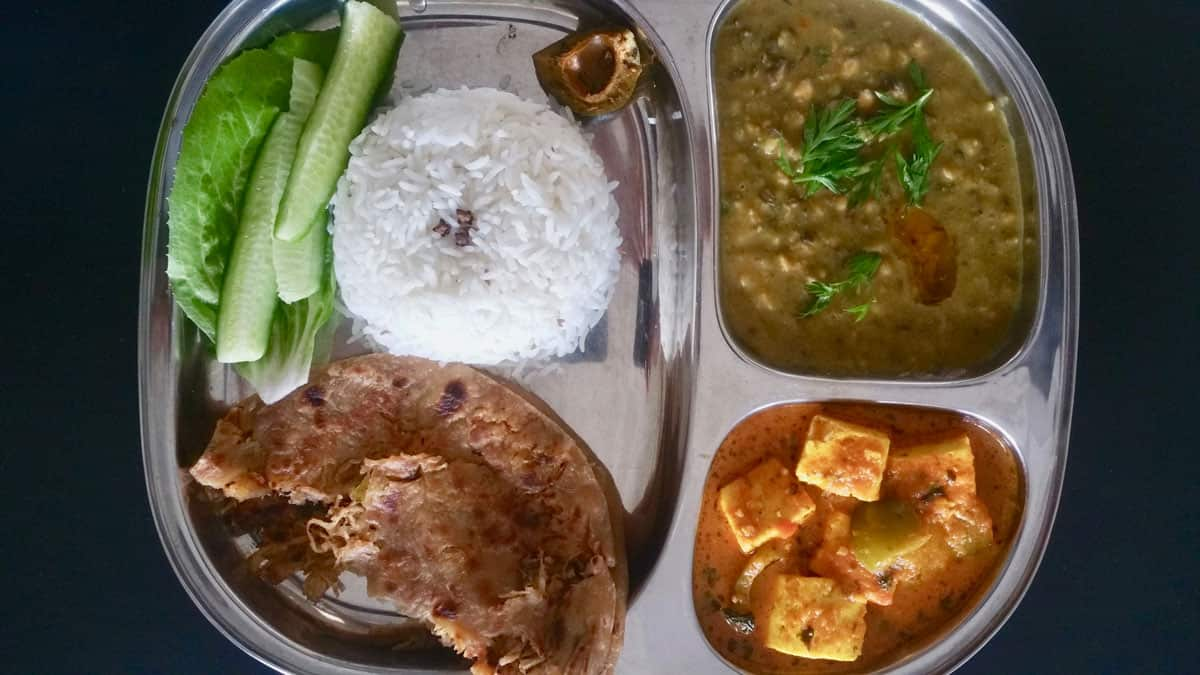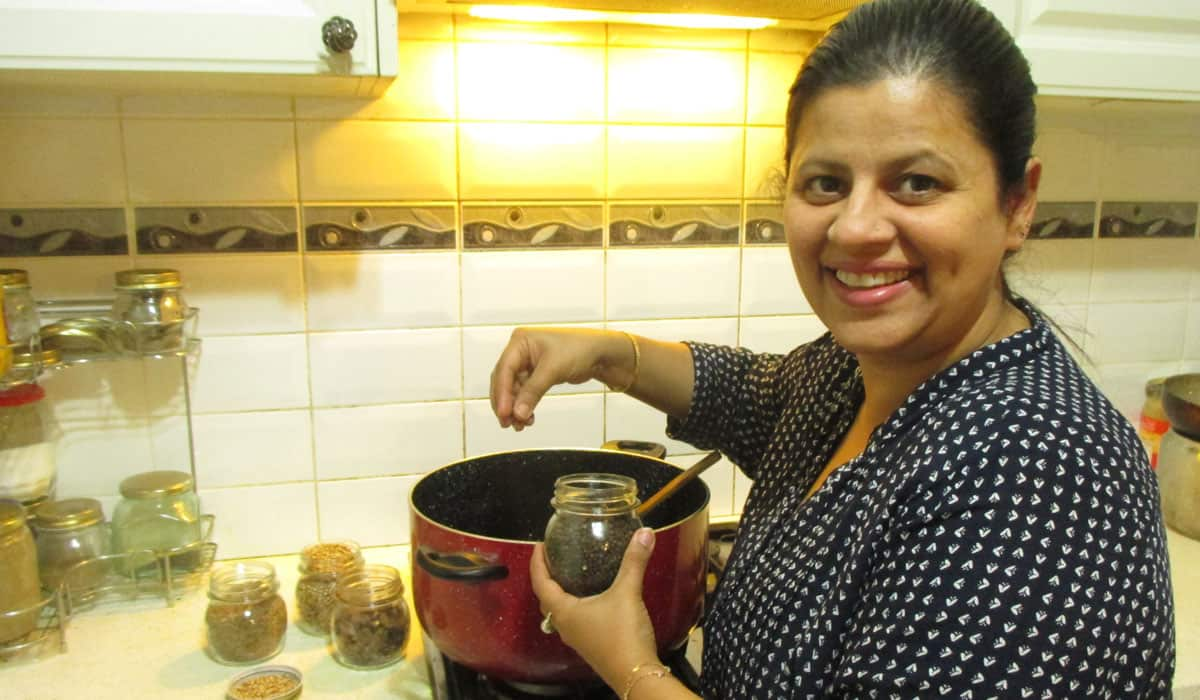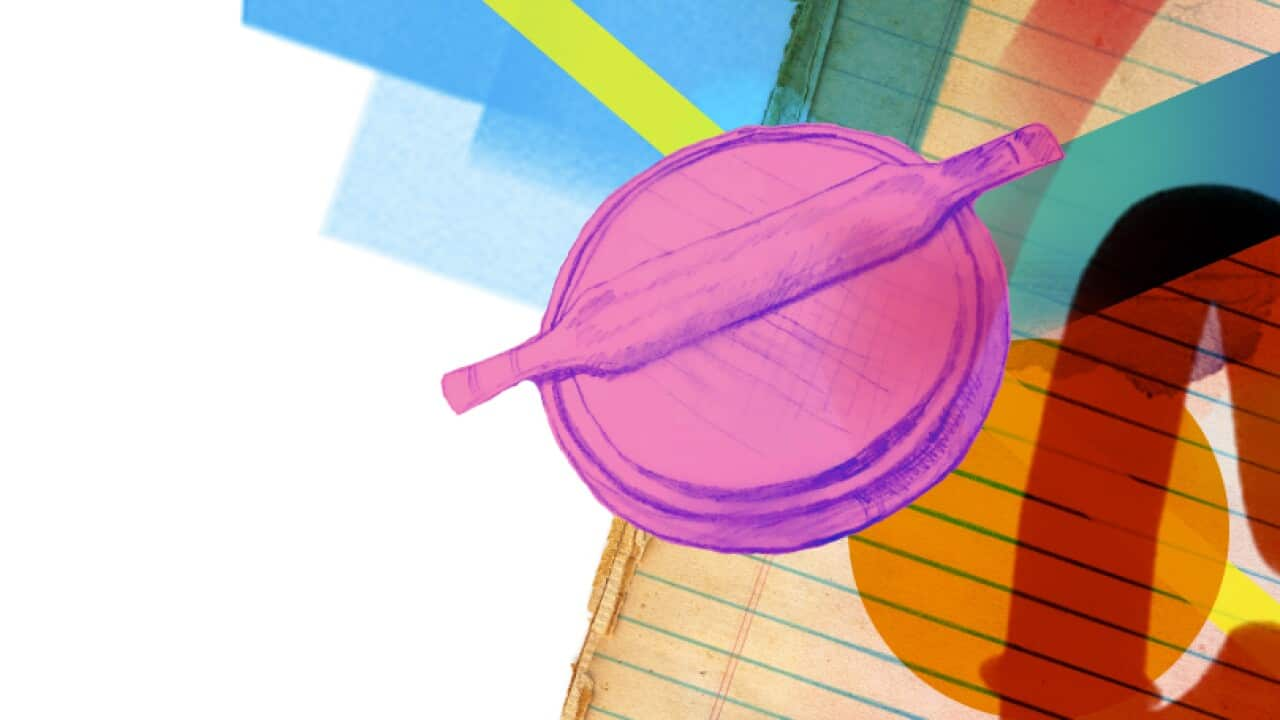It's 11.30am in Mumbai, India, and a team of young men are filing into an office building carrying oversized trays piled high with tiffin containers filled with dhal, palak paneer and pillowy parathas.
As the young dabbawallahs (lunchbox carriers) descend into the staff kitchen, they unpack the tower blocks of tiffins and dole out about 60 home-cooked lunches to the hungry hordes. It's a scene being played out every day across India and one that has been woven into the country's fabric since the tradition began in Mumbai more than a century ago.
TV presenter Anjum Anand has a chapter dedicated to the tiffin in her cookbook I Love India where she writes that a walk down the road in India "often entails jumping out of the way of lunchbox deliveries being made on cycles, wooden carts or on the back of a tempo (small open-backed truck)".
In his book, Masters of Supply Chain Management, Dr Pawan G. Agrawal, states the dabbawallah system of delivering food dates back to the 18th century when a Parsi banker employed a young man to deliver his lunch from Pune to Mumbai every day. Today, the 125-year-old system is still going strong with an article in The Financial Times estimating that dabbawallahs conduct about 260,000 transactions per day in India's commercial capital, Mumbai. That's about 80 million deliveries each year. Agrawal says the logistics required to keep the tiffin delivery service on track are carried out with military-like precision. Despite there being no modern technology involved, he says there is evidence to indicate that very few tiffins fail to arrive.
Agrawal says the logistics required to keep the tiffin delivery service on track are carried out with military-like precision. Despite there being no modern technology involved, he says there is evidence to indicate that very few tiffins fail to arrive.

A typical tiffin meal of rice, curry, dhal and salad Source: Carla Grossetti
The delivery service is reportedly so reliable that it has been studied by industry giants such as Motorola, Fed-Ex and Virgin. The humble tiffin has also inspired romance in the 2013 film, The Lunchbox, where a mistaken delivery of a tiffin connects a young housewife to an older man.
The framework for delivering dabbas - or tiffins - involves an alpha coding system that enables an army of men with limited education to identify the tiffins they transfer to and from the offices each day and to ensure each tin ends up at the right place at the right time. The tiffin itself comprises stacked metal compartments contained in a frame with a handle. Each container carries individual portions that separate curries from rice, bread and dessert.
The meals are often prepared in the homes of the workers who commute from villages outside Mumbai each day, are delivered in their own tiffin tin and returned by day's end. The charge for the service is about 150 rupees (.60c) a day. In recent years, the humble tiffin has further evolved and inspired young start-ups to cater everything from low-cal dinners to raw food.  In Sydney, Yummy Punjaby Tiffin Services is the Ubereats of Indian home cooking. Husband and wife team Kamaljit Arora and Palwinder Kaur say their customers are mostly single students or professionals who miss food from the mother country.
In Sydney, Yummy Punjaby Tiffin Services is the Ubereats of Indian home cooking. Husband and wife team Kamaljit Arora and Palwinder Kaur say their customers are mostly single students or professionals who miss food from the mother country.

Tiffin lunches are popular in Mumbai, India's commercial capital Source: Carla Grossetti
"There are a lot of migrants from India who want healthy home-cooked food delivered to them," says Arora, who moved to Sydney from the Punjab province 10 years ago. "My wife is a good cook and our customers compare our food to their mother's cooking which is very gratifying," he says.
"My wife is a good cook and our customers compare our food to their mother's cooking which is very gratifying," he says.

Palwinder Kaur cooks Indian meals for her tiffin customers Source: Carla Grossetti
The everyday Yummy Punjaby menu includes a dry curry, with four roti and rice, one lentil dish, curd salad and pickles delivered for $10. "It's an everyday meal. It's not fine dining," says Arora, who manages deliveries from Burwood to the Ponds.
While a traditional version of the simple four-tiered Indian tiffin tin is available online from Oxfam Australia, fancier versions are also available in French enamel from Tiffinware. Tiffin can also be enjoyed in all their glory in the Kerala version dubbed saadha at Telli Cherry in Neutral Bay. Check out Adam Liaw's Destination Flavour Singapore for a tiffin-inspired caramel with fruits and flowers.
Have we got your attention and your tastebuds? The Chefs' Line airs 6pm weeknights on SBS. Check out the program page for episode guides, cuisine lowdowns, recipes and more.
Love the story? Follow the author here: Twitter @carlagrossetti, Facebook @Carla Grossetti - Writer, Instagram @carlagrossetti Photographs by Carla Grossetti.






